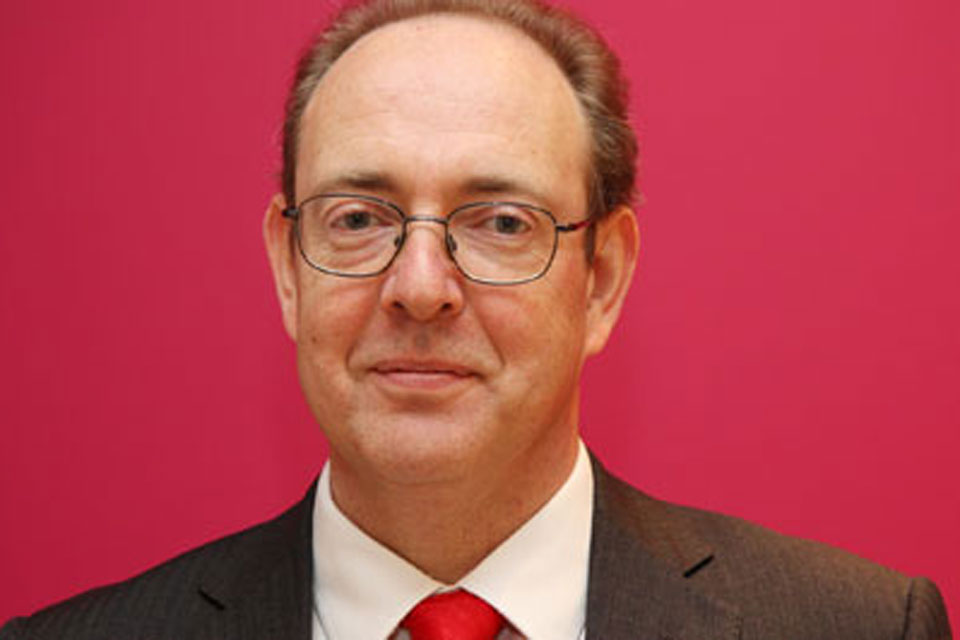Britain makes wonderful things
Transcript of a speech by Sir James Bevan KCMG, UK High Commissioner at the UK-India manufacturing reception in New Delhi.

Professor Gregory, distinguished guests, friends and colleagues,
Making things is important. Manufacturing makes a critical contribution to the economy. It generates growth and jobs. It produces knowledge. It drives innovation. It boosts productivity. It produces highly skilled and well paid workers. It promotes exports. And it helps ensure economic resilience. So I am delighted to welcome you, this distinguished group of senior experts and policymakers from the field of manufacturing. Your work matters hugely.
As High Commissioner I spend a lot of time busting myths about Britain. One myth is that the UK no longer makes things. Let me tackle that myth head on.
We in Britain are proud of our manufacturing history. We started the industrial revolution. Things that the Brits built, invented or discovered include television, the pencil, the telephone, SMS messaging, the light bulb, railways, the steam engine, hovercraft, penicillin, gravity, the jet engine, radar, longitude, vertical take-off aircraft, evolution, and the internet. Not to mention the British invention which has perhaps contributed more than any other to world happiness – sticky toffee pudding.
But we in Britain are also confident about our future as a manufacturing country. The UK is one of the top ten manufacturing countries in the world in terms of Gross Value Added. The manufacturing sector of our economy generates more than 10% of our GDP, over half of UK exports and three quarters of business R+D.
We are one of the world’s most successful automotive manufacturers. Today we make more cars in Britain than we have ever made and the UK is home to 19 of the world’s top 20 automobile manufacturers.
We have the second biggest aerospace industry in the world, after the US. An aircraft with Rolls Royce engines takes off or lands somewhere in the world every 2.5 seconds. Half the world’s commercial aircraft fly on British-made wings. People think that the Airbus aircraft is European not British, but if you take the British components out of an Airbus, all you are left with is a bus.
And the UK is world class in industrial design and intellectual property. 95% of the world’s mobile phones contain a microchip designed by ARM, a UK company based in Cambridge. When you take medicine, you are likely to be relying on a UK product or patent: two of the world’s top six pharmaceutical companies are based in Britain.
But in today’s world, manufacturing is a global game. The great Indian company, Tata, now own Jaguar Land Rover, and under their leadership that company has gone from strength to strength. Indeed Tata are now the biggest manufacturing employer in the UK. We welcome that expertise and that investment. It is creating jobs, growth and innovation in both our countries.
It works the other way too. It is a good bet that if you travel anywhere around India, within half an hour you will see a yellow JCB digger, building a road or irrigating a field. In fact more than half of all the yellow diggers in India are made by JCB. JCB are a great British company, but they make those diggers here in India and export them round the world. And India is not just a manufacturing centre for JCB, it is increasingly a design centre too, as India becomes a world leader in innovation, engineering and design.
So we are no longer islands. In a globalised world, collaboration is the way forward. Both India and the UK want strong manufacturing sectors as part of their future. That’s why it is so important to build stronger links in this field between our governments, our academic institutions, and industry partners. The work that all of you are engaged in is vital for the futures of both our countries, and I am delighted to welcome you here today to celebrate that work and our partnership.